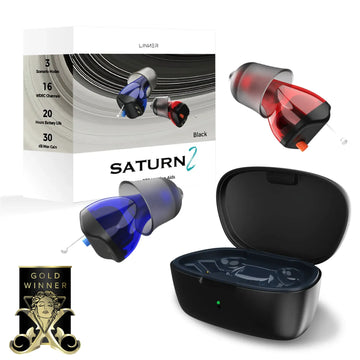
Ototoxicity is the poison to the ears.
We all know that there are things that are not good to let come in contact with our eyes or skin. There are things that are not safe to put into our mouths or ingest. With some common sense, we have learned that putting q-tips in our ears can actually cause damage to the ear canal or rupture the eardrum.While it makes sense when you stop to think about it, it is not commonly thought about, but there are some substances that can cause reactions which are known as ototoxic reactions.
What does ototoxic mean?
Simply put, the prefix "oto" means of or related to the ear and toxic means poisonous. In other words, ototoxicity is related to ear poisoning. But most ototoxic substances do not enter in through the ears, rather they are ingested. So what are some of the most common ototoxic substances people consume or come in contact with?
Tobacco
Tobacco may come as a surprise. We know through health sciences that tobacco is not good for your overall health, but one aspect that is not as well known is its effect on hearing.Tobacco is ototoxic in that it can increase the spread of hearing loss as well as tinnitus.So how exactly does this happen? The first thing to note here is that ears, nose, and throat are all connected. There are tubes that connect
your middle ear to your larynx which helps with equalization of the ears. These tubes are called eustachian tubes.When you smoke, it can actually irritate the eustachian tubes much like the lungs. This can cause a lot of issues from (as mentioned already) eustachian tube irritation to increased eustachian tube dysfunction.
Okay maybe that makes sense for smoking, but what about dipping? yes, dipping can cause issues as well, there are chemical properties in tobacco that can cause irreversible damage to the ears. The biggest culprit in tobacco related to hearing issues as it relates to the ototoxicity is nicotine. Nicotine has been observed to cause cell damage, this includes damage to the hearing nerve.Nicotine interrupts these little neurotransmitters which allow the brain to interpret sound. Nicotine can also be a trigger for tinnitus which can cause its onset or increase the sensation. Also worth noting, as the vestibule is connected to the cochlea, balance issues can come as a result also of nicotine.
Best case scenario, stay away from tobacco as it is not good for your overall health, but also bad for your hearing.
Alcohol
Alcohol is another consumable that makes the list for its ototoxic qualities. the effect it has on the central auditory processing, down to the hair cells in the cochlear. The effect of alcohol on the body itself is manifest by its toxic nature. The effects on the ears and the ability to hear can also be impaired temporarily, and eventually even permanently.
Caffeine
I know, we are touching on all of everyone's favorite vices. But caffeine has been studied and found to be a contributing factor to some hearing losses. While this one isn't a direct effect, regular exposure to caffeine has been noted to slow down and delay your body's ability to recover from prolonged exposure to loud and noisy environments. The fact that so many people use caffeine to assist them through their workdays, or to enjoy a rock concert adds irony to the issue.
Antibiotics And Other Medications
We won't dwell on this to much because this opens up a whole lot series of conversations, but we will simply say, there are some commonly used antibiotics and medications that are ototoxic and can cause various levels of hearing loss between mild to profound and temporary to permanent. It is always good to review medication package inserts for information on adverse effects of that medications use.
Conclusion.
Ototoxicity is an issue that most people aren't aware of. The prevalence of substances, and their popularity is a little concerning. Not only are the for the effects on hearing and the ears, but all the other side effects that can come with these issues. Consumption of ototoxic substances should be done so in moderation if you decide to pursue. Ototoxic medications should always be dispersed and monitored by a qualified healthcare professional.






![Linner Mercury Clarity OTC Hearing Aids [FSA & HSA Eligible] Linner](http://www.linnerlife.com/cdn/shop/files/Linner-Mercury-Clarity-OTC-Hearing-Aids-_FSA-_-HSA-Eligible_-Linner-110038953.webp?v=1725853434&width=360)

